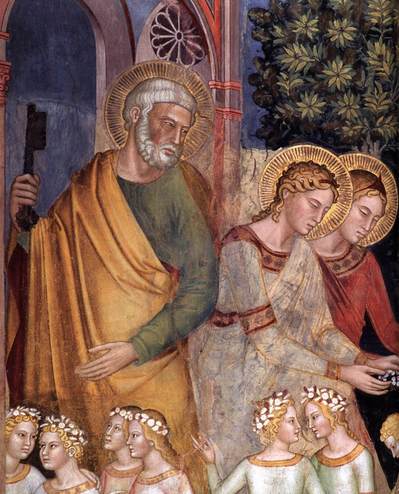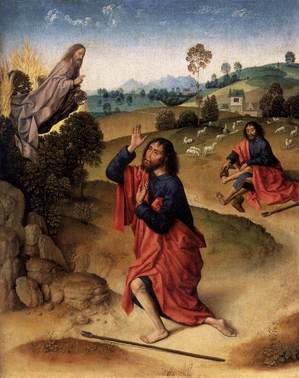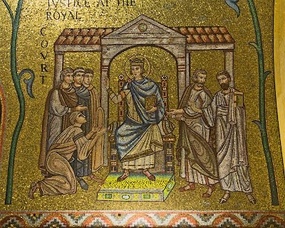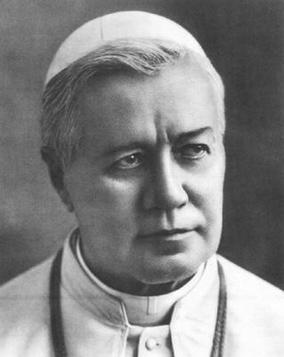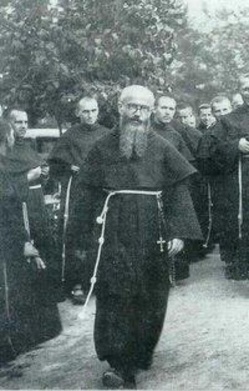Last evening at Vespers at the Monastery of the Glorious Cross, a monastery of the Benedictines of Jesus Crucified (where I attend the prayer and Mass regularly with the nuns) the Office book had the hymn noted below that made me think of what we believe as Catholics and why we believe that the Guardian Angels exist. From the Liturgy we hear prayed that God sent the “holy Angels to guard us” and to accompany us in earthly journey and in praise of God.
We know what Saint Basil the Great taught about the guardian angels: that “each and every member of the faithful has a Guardian Angel to protect, guard, and guide them through life.” Our spiritual tradition however, delves deep into the Jewish spiritual tradition with Moses, David, Ezekiel, Daniel, Eusebius but we have Saints Matthew, Jerome, Benedict, Bernard of Clairvaux, Francis of Assisi, Thomas, Josemaria who are clear voices that verify the place and and role of the Guardian Angels. Angels, though, aren’t a Catholic belief; it is a deeply Jewish belief. Check your bible. You can also read Mike Aquilina’s Angels of God: The Bible, the Church and the Heavenly Hosts for more information.
The detail of the picture above by Andrea da Firenze, “Way of Salvation,” shows Saint Peter leading with the help of the angels. Do we in our humility of being rely on the angels to do help us on our way toward salvation?
We thank you Father for your guardian angels,
Sent as protectors for weak human nature.
Our foes are many, ev’rywhere in ambush.
Angels defend us.
Satan has fallen from his place of honor.
He and his angels burn with jealous envy.
They try to tempt us souls whom God has chosen,
Rob us of heaven.
Come, guardian angel of our own dear country,
Land God once gave you to be our defender.
Keep from it evils both of soul and body,
Peace reign within it!
Praise to you, Father, Son and Holy Spirit,
One God for ever ruling all creation,
Things seen and unseen governing in glory,
Thru all the ages. Amen.
Translation: Kenneth Tomkins, OSB
1992 Quarr Abbey, Ryde, Island of Wight, England
A previous post on the Guardian Angels is here.
